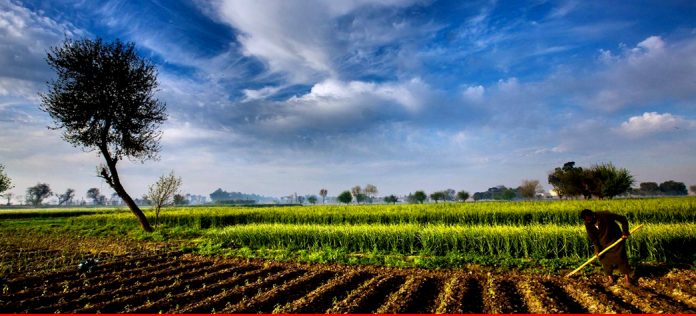ISLAMABAD: Pakistani companies, in collaboration with Chinese partners, have been spearheading various innovative projects to boost agriculture in desert regions.
These efforts are primarily focused on desert farming in Bhakkar and Muzaffargarh in the Thal Desert, as well as Bahawalpur in the Cholistan Desert of Punjab, Gwadar Pro reported on Wednesday.
In a world facing the challenges of climate change and environmental degradation, the idea of converting deserts into flourishing oases and green landscapes might seem far-fetched.
However, ambitious reforestation projects around the globe are making this vision a reality.
Pakistan boasts five major deserts that were once covered in forests. These include the Thar Desert in Sindh, the Kharan Desert in Balochistan, the Katpana Desert in Skardu, the Thal Desert in Bhakkar, Punjab, and the Cholistan Desert in Bahawalpur, Punjab.
One of the notable farming projects between China and Pakistan in Thal Desert gained significant attention last year as it successfully cultivated a variety of crops and trees including Rhodes grass, wheat, alfalfa, orchards, citrus fruits, mangoes, guavas, bamboo, olives, dates, and Bari.
Located in Rangpur Muzaffargarh in Punjab, the project is equipped with advanced agricultural water-efficient machinery known as the central pivot system.
Similarly, Green Pakistan Initiative, led by Land Information and Management System (LIMS) is focusing on revitalizing agriculture in the Cholistan desert.
This initiative uses modern agricultural technology to improve farming and livestock management.
The project has introduced smart agricultural machinery imported from China, marking a major shift towards modern farming techniques under the Corporate Farming Initiative.
Experts believe that during a time when Pakistan’s economy needs stimulation across various sectors, innovative desert projects can significantly contribute to positive growth by enhancing food security and improving livelihoods.
Several such projects have the potential to transform deserts into productive agricultural and even aquaculture hubs.
Another similar project is going on successfully in the Cholistan desert of Bahawalpur, Punjab. Abdul Hafeez, Director of Operations at Dayzee Farms informed Gwadar Pro that farming activities are underway on 4,500 acres of what was once pure desert. Of this, 1,200 acres have already been developed, with plans to establish 10,000 livestock in the area.
Hafeez mentioned that they plan to install around 27 pivots, which they are importing from Turkey. The farming project employed local farmers and laborers.
Previously, Hafeez worked with a Chinese company in the Thal desert, Muzaffargarh.
He noted that China has successfully afforested their lands, and suggested that Pakistan should adopt similar techniques to boost food availability and production.
Such innovative desert projects can significantly enhance Pakistan’s food security by transforming arid regions into productive agricultural lands. Additionally, they can benefit local communities by creating employment opportunities and stimulating the local economy.
Sam Knowlton, an agronomy consultant for leading agricultural and food companies, recently visited Drawdown Farm in the Thal Desert of Pakistan.
He noted that after just two seasons of holistically managed multi-species grazing, the desert soil had transformed from lifeless sand into a carbon-rich sponge, supporting a growing diversity of life both above and below ground.
He remarked that the farm is literally greening the desert while producing a variety of grains, fruits, specialty crops, livestock, and more.
The government of Pakistan seeks increased investment in innovative projects, such as green desert initiatives, which can significantly boost its economy.
Tharparkar, also known as the Thar Desert in Sindh, the 18th largest desert in the world, in
particular, is underdeveloped, and such initiatives could bring much-needed prosperity in the province.
particular, is underdeveloped, and such initiatives could bring much-needed prosperity in the province.
The UNDP’s Multidimensional Poverty Index for Pakistan reports that 87% of the population in Tharparkar lives in poverty. With its vast potential, the Thar region could see significant economic growth and improved living standards through investment in these innovative desert projects.
They are not only mitigating the negative impacts of deforestation but also providing hope for a sustainable and greener future.




